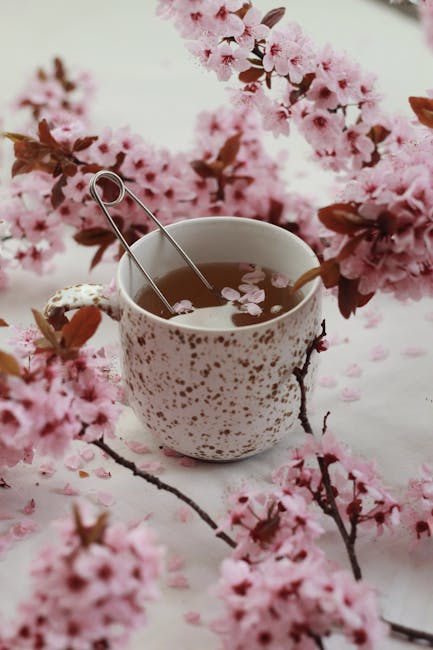Labor not only creates material and spiritual wealth, it is also the driving force of human civilization’s progress. However, the real value of life is not merely reflected in hard work; timely rest and leisure are also indispensable. Only by achieving a balance between work and rest amidst busyness can one truly experience the joys of life. We must learn to enjoy life even in the midst of busyness to appreciate all the beauty it has to offer.
After traversing mountains and rivers, either the body or the soul must be on the journey. Whether it is through reading or traveling, we can enrich our life.
1. Nature can broaden one’s horizon
Li Bai, when young, left his home with a sword, traveled around the world, south to Cangwu, and east to the imperious sea. It was such a free and easy traveling experience that made his life not just confined to the trivialities of the officialdom. He could cheerfully wield his sword, step outdoors, and even face the emperor’s summons without yielding. Those who have trekked through mountains and rivers always possess a special openness and ease.
2. Nature can enrich life
At the age of twenty, Sima Qian had already traveled all over the country’s famous historical sites, witnessing the relics of Yu the Great’s water control and Confucius’s schoolhouses. History was revived through his direct observations and feelings, vibrant and resistant to distortion or submission. It is because of this profound sense of history and responsibility that Sima Qian created the eternal “Records of the Grand Historian.”
3. Nature can cultivate temperament
In Chinese culture, there is a spirit of cultivating one’s moral character regardless of success or failure. Every scholar who has stepped down from officialdom, every ordinary person who has encountered setbacks in life, needs the comfort and transcendence of nature. Tao Yuanming had the transcendence of picking chrysanthemums beneath the eastern fence and leisurely seeing the southern mountain, while Lu You and Su Dongpo found solace in nature for their emotions. In the embrace of nature, people can forget worldly troubles and find inner peace.
Being diligent in practice and persistent in deeds is an important lesson in life.
1. Unity of knowledge and action
Inferior wisdom comes from thinking, but truly great wisdom comes from practice. No matter how profound the theories of the world are, without action, one can never understand the true essence. The master Wang Yangming emphasized the unity of knowledge and action; only by integrating knowledge with practice can one truly understand and master the truth.
2. Diligence compensates for incompetence
Zeng Guofan pointed out that there are two major flaws in life: laziness and arrogance. The wise often fail due to arrogance, and the foolish often fail due to negligence. However, diligence can make up for the lack of innate talent, and hard work is the key to success. Many outstanding figures in history, such as Sima Guang, have achieved remarkable accomplishments through diligence.
III. Begin with Action
Wang Yangming advocates that one must experience mistakes and correct them to obtain true knowledge. No effort is valueless in this world; even temporary confusion and mistakes are precious experiences. One must not rely on caution to the extent of daring not to try anything, as that is the true waste.
Observation is an important means of acquiring wisdom; through insight into the myriad aspects of the world, we can gain a deep understanding of life.
It is often said by ancients, “The appearance comes from the heart.” The richness of the soul and the broadening of horizons often come from our deep observation and perception of our surroundings.
It is commonly said that a person’s inner world is often revealed through their external demeanor. Indeed, appearances and demeanor can often reveal a person’s character and thoughts.
Once, three new aides came to visit Zeng Guofan. The first aide behaved gently, with a shy gaze, showing extreme restraint. Zeng Guofan judged that this person was suitable for clerical work. The second aide was good at speaking and had a sharp gaze, but his unstable demeanor showed a crafty nature, leading to the judgment that he was untrustworthy. The last aide appeared majestic, with a loud voice and a firm gaze, displaying a demeanor that brooked no violation. Zeng Guofan believed this person could become an outstanding general in the future, and in fact, this man was later the illustrious Luo Zenan, known for his great military achievements.
To judge a person by appearance and demeanor is not superficial, but rather an accurate intuition, an essential skill in the process of interpersonal interaction. With keen observational skills, we can understand others better.
Similarly, our ears must also remain active; we must learn to listen. Steiner once suggested a principle: “The less talking there is, the more can be heard.” The world today is not short of eloquent speakers, but few truly know how to listen. If one can humbly accept the advice and criticism of others, they can continue to progress. As Confucius said, those friends who are unwilling to give advice are not true friends; those who refuse to accept suggestions can hardly achieve greater success.
True friends are those who understand how to listen to your inner voice. Listening does not require judgments or comfort; silent listening is the greatest support. Like water, friends who know how to go with the flow and be non-contentious are often more trustworthy.
Our brains also need to stay busy, as thinking should never stop. A person’s wisdom and creativity grow with their continuous thinking. To live is to learn, and to keep thinking is the necessary path for everyone. Reflection is an effective way to promote self-improvement. Zeng Guofan had the habit of keeping a diary, where he sincerely analyzed his gains and losses, taking the opportunity to continuously improve himself.
Besides being busy, our hearts also need a measure of peace. Liang Shiqiu once said, “When a person is at leisure, they are most like a person.” Even amidst busyness, we need to maintain inner peace and self at all times. When Su Shi served as the prefect of Hangzhou, he liked to work in a pavilion on the mountain, and he enjoyed a serene rest besides his official duties.
The tranquility within is not only the free space of life; it also allows us to remain composed, without losing ourselves even amidst busyness.







